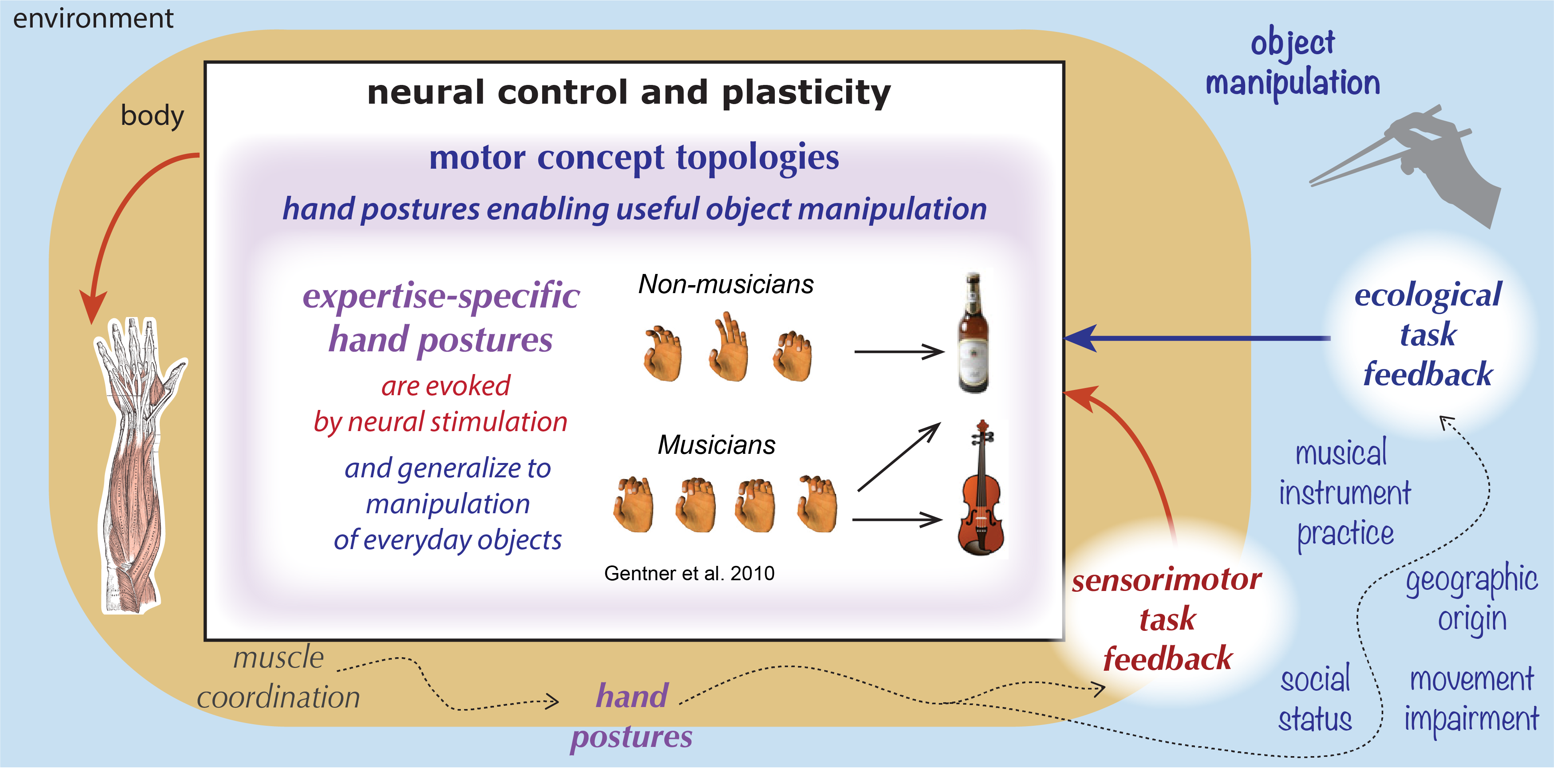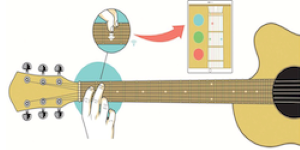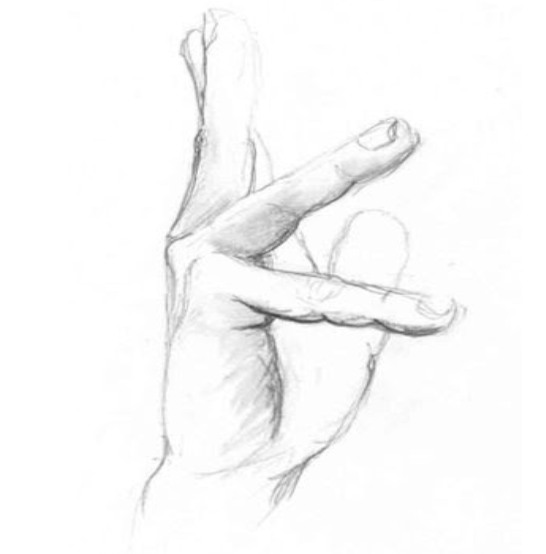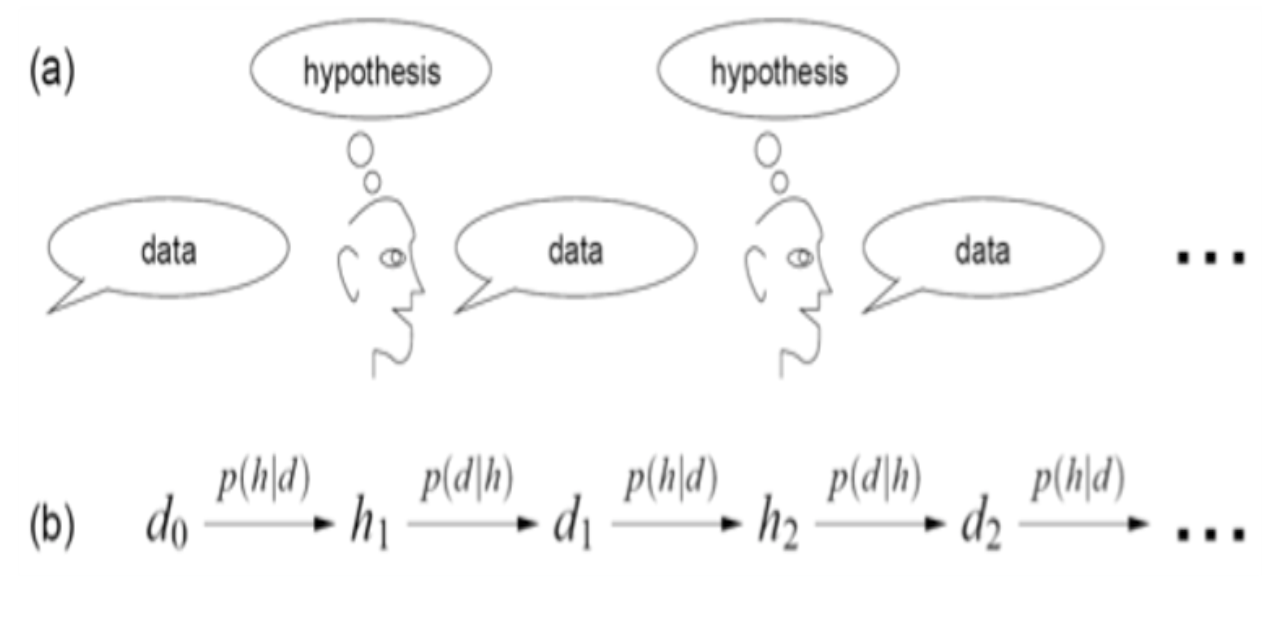Complex skills
Immanuel Kant once remarked, “The hand is the window on to the mind.” In this line of research, we study how humans acquire and maintain complex motor skills, especially dexterous manual skills. This offers us an opportunity to peek into the workings of the human mind.
Each individual has their unique way of moving in the world. In a recent opinion article, we proposed a conceptual framework for the emerging new field, ethnokinesiology, the neuromechanical studies of cultural influences on human movement (Ting et al., 2024). Each person’s motor repertoire and their unique style of moving are sculpted through culture, broadly defined as a form of long-term, extensive training through ‘community of practice,’ This process involves intricate interplays between key biological factors, such as biomechanical constraints and neuroplasticity, and cognitive factors, such as reinforcement learning and generalization.

Direction 1: Identifying neuromechanical features of motor repertoires
We study healthy participants’ highly skilled movements in everyday life, such as typing, texting, cooking, as well as experts, such as athletes, musicians, surgeons, etc., by tracking people’s hand movements in more naturalistic contexts using advanced biomechanics devices and machine learning algorithms.
- The large amount of fine-grained data from our hand device opens a window through which to examine hand function in a multi-dimensional space using an ecologically valid, while still experimentally controlled environment. Our recent work using PCA and LDA analyses was able to effectively capture the altered spatiotemporal structures in finger force coordination when stroke survivors attempted to individuate their fingers (Ihejirika, 2025). Additionally, we were able to identify individuals’ unique features in their finger control spatiotemporal structures.
- We are testing markerless motion tracking tools with the aim of moving data collection ‘in the wild.’
- We worked with engineers at Johns Hopkins University (JHU) and musicians at the Peabody Institute to build a SmartGuitar, which enables real-time force recording from a guitar player with 72 force channels embedded in a real guitar. This engineering feat won first place in JHU Engineering Design Day 2019.


Direction 2: Capturing cultural influences that form motor accents through neural and cognitive processes
Our previous research using experiments that mimic the Markov Chain Monte Carlo (MCMC) process in human information transmission has shown to be a powerful paradigm to probe high-dimensional psychological spaces and converge quickly to the estimate probabilistic distributions of categories residing in people’s mind Xu & Griffiths 2010,( Xu et al., 2013). Here we employ this approach to study learning and memory of complex motor skills across different expertise/cultures and generations.

 Back to research
Back to research
